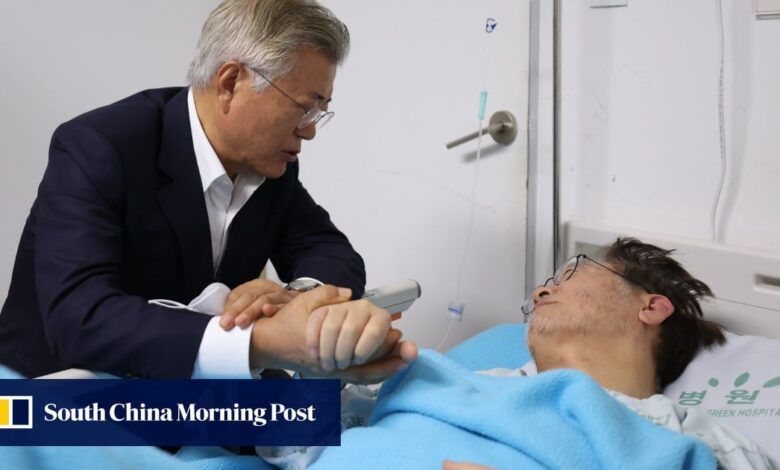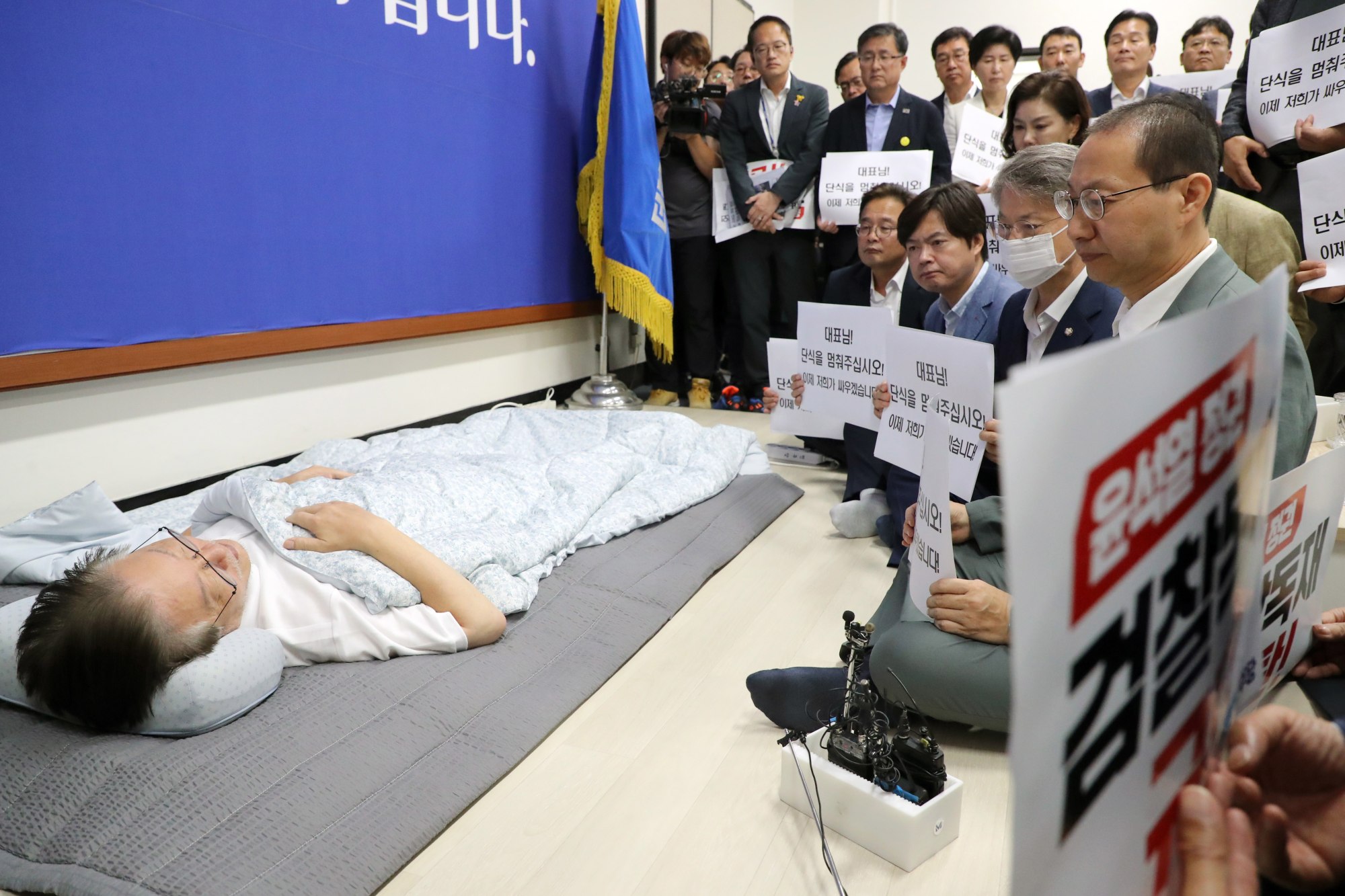South Korean parliament’s vote on opposition chief’s arrest a sign of ‘unprecedented’ political divide

[ad_1]
Prosecutors charged Lee with giving illegal favours to a private property investor between 2014 and 2017 in Seongnam city, south of Seoul, in return for kickbacks when he was serving as the city mayor.
Lee has flatly denied all the charges, claiming that no evidence had emerged even after the authorities had carried out more than 300 raids with hundreds of investigators over the past two years.

In a statement on Wednesday, Lee said the motion to approve his arrest was “absurd and illegal”, and politically motivated.
“Please stop the runaway train of prosecutorial dictatorship in front of the National Assembly. Protect the constitutional order and democracy that are in peril,” he said.
Lee had started a hunger strike on August 31, lamenting that South Korea’s hard-won democracy was being rolled back at the hands of what he called “a dictatorship by prosecutors”, who he alleges are out to weaken the opposition and gag the free press.
Hunger strikes have been used in the past as a means of political protest, often by opposition politicians under past authoritarian governments in the 1970s and 1980s.
“This hunger strike is the last resort left for Lee to make sure the National Assembly votes down the motion to approve his arrest,” said Choi Jin, head of the Institute of Presidential Leadership think tank.
South Korea’s Yoon under fire for trying to play down anti-Japanese moves
South Korea’s Yoon under fire for trying to play down anti-Japanese moves
Another motion introduced by the DKP, for the dismissal of Prime Minister Han Duck-soo to heap pressure on the president, will also be submitted for parliament voting on Thursday.
The DPK accused Han of incompetence as chief of the cabinet and held him responsible for what it called the Yoon administration’s failures such as its “meak” response to Japan’s release of treated Fukushima water.
The motion is likely to be approved as Lee’s DKP holds a majority with 167 seats against Yoon’s ruling People Power Party with 111 seats in the 297-member parliament, including independents and other splinter parties.
“I think the two rival parties may reach a backroom deal under which both Lee’s arrest and the dismissal of the prime minister would be both rejected at the same time,” said Choi, the analyst.
This fracas over Lee’s arrest has deepened political polarisation to an unprecedented degree since South Korea restored democracy in 1987
Yoon Sung-suk, a political-science professor at Chonnam National University, said Lee’s hunger strike had an effect of rallying his supporters and discouraging his rival intraparty faction lawmakers from crossing the floor to join the ruling party to vote for his arrest.
South Korea’s anti-Fukushima opposition chief in hospital after hunger strike
South Korea’s anti-Fukushima opposition chief in hospital after hunger strike
Alongside security, pursuing harmony among the people is one of the most important presidential tasks, but the president has never responded to repeated requests for a meeting with Lee, the professor said.
Lee and his party blame President Yoon for deepening economic woes such as rising inflation, low growth and high unemployment.
The latest opinion poll commissioned by local online new site News Tomato published on Monday showed Yoon’s approval rating at 28.5 per cent, down 4.8 percentage points from a week earlier.
[ad_2]
Source link

